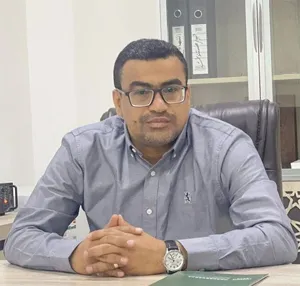Economist Dr. Haitham Mohammad Fathi writes…Reconstruction and the Resource Curse

Sudan has a huge wealth of human resources and people with vast untapped skills and experiences, in addition to the many natural resources that can bring about great positive change.
Taking advantage of these resources is essential in addressing the multiple challenges facing the Sudanese economy. Therefore, it is necessary to rely on exploiting these resources in local projects. Many countries rich in natural resources have not exploited their development potential in the most appropriate manner due to what is called the “resource curse,” which is the negative impact of natural resources on the economy, society and politics in these countries, taking into account the nature of the Sudanese economy, and the major role that mineral revenues, especially gold, represent as a large part of government revenues, the Sudanese economy has the potential for advancement and development in many sectors, including, for example, services, tourism, agriculture, and fisheries. An effective tool must be created to encourage the private sector, improve the investment climate, and advance private sector participation in the Sudanese economy, while improving the efficiency of government spending in order to achieve a financing surplus for use in development projects.
It is also possible to cooperate with many international organizations such as the United Nations Development Program (UNDP) regarding financing for development to achieve successful post-war reconstruction, political and security stability is necessary, especially with the Sudanese economy’s limited ability to provide the necessary funding for reconstruction.
We will have to rely heavily on external financing for reconstruction, through aid, loans and investments.
However, there are geo-economic factors related to obtaining this funding, including the political, economic and diplomatic relations of the rich countries in the European Union, the United States and the Gulf Cooperation Council to provide the necessary funding for the process of rebuilding what was destroyed by the war. Reconstruction is a political and economic process that involves rebuilding the state and reshaping the relationship between the state and society after the end of the conflict. Therefore, the interaction between political and economic factors is fundamental to determining the prospects for post-war stability, especially with regional rivalry.
Reconstruction does not necessarily mean the end of the current conflict in the country, as this process may ignite the flames of new regional and international rivalries. As a geo-economic process, it is unlikely to create sustainable stability unless it is coupled with a minimal political process that allows for the re-distribution of losses and profits.



